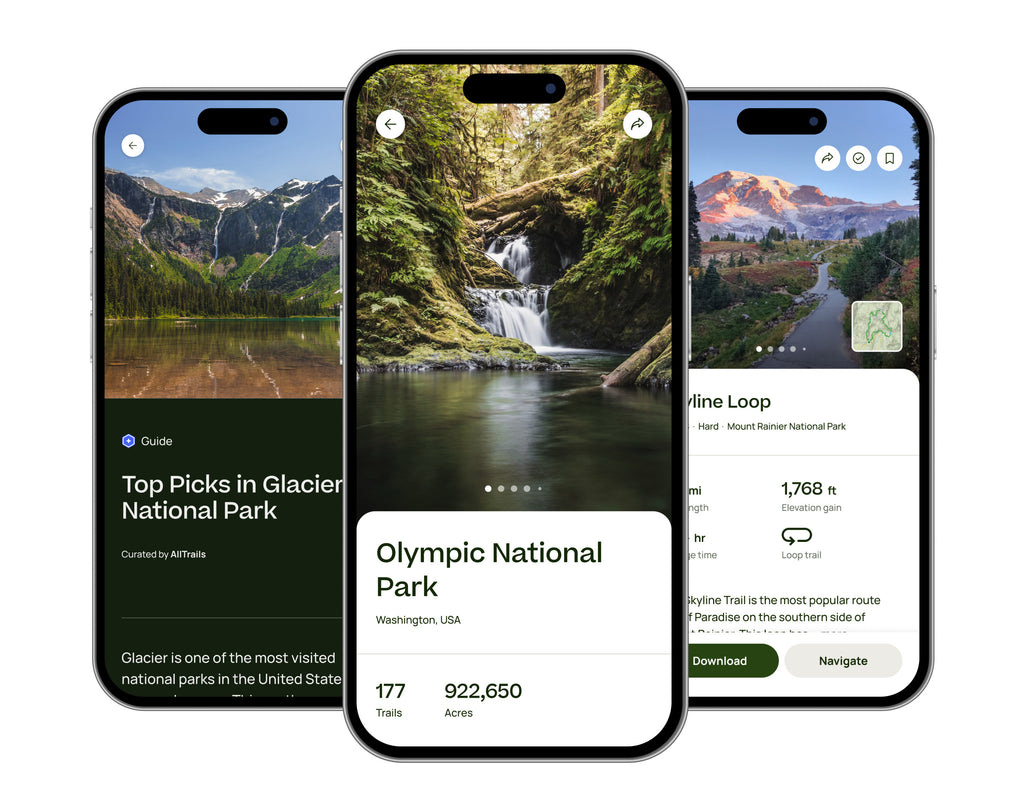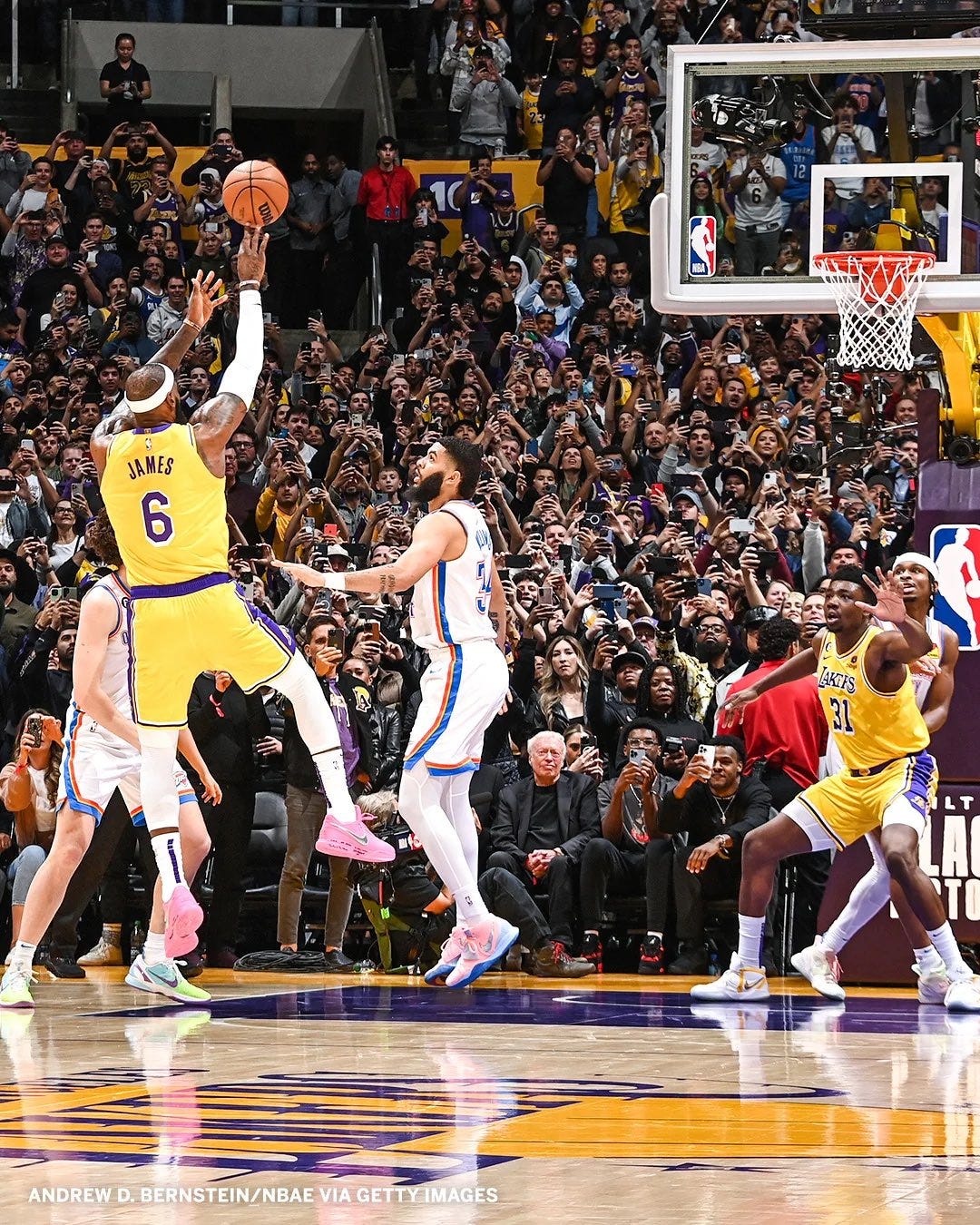Capturing Joy
Can an emphasis on capturing moments diminish their value? Thoughts on the desire to document everything and how we experience moments through our devices.
If we spend the best days of our lives on our devices, are those days any worse? If you are too focused on recording your toddler’s first steps, is it less memorable? If you snap a photo of a sunset to share, instead of savoring it deeply, are you missing out on some important piece of the experience?
I often wonder about these questions, especially as someone building a gratitude journal app. An app that, by all intentions, should be a good thing.
It’s well known that our devices can be bad for us in many ways and less usage would likely improve our collective mental health. But much of the conversation is around the obviously bad aspects: the notifications, the doomscrolling, FOMO, unhealthy comparison, addiction.
Where do we draw the line on “bad” uses of our devices?
What about the simpler, basic uses of our devices? Is it somehow bad to take a photo of your chocolate croissant at the fancy cafe? Is it bad to rely on your phone for directions on a hike? These are the more subtle, complicated aspects of device-driven culture that need more of our attention.
Living moments through our phones might actually be taking something away: a level of involvement that we rarely experience anymore.
An Example, The Sunrise Hike
Imagine you’ve been hiking for the better part of a cool Saturday morning through a popular national park. You camped nearby and wake up before dawn with the hope of seeing a particular vista before it becomes swamped with other visitors snapping selfies. You pass a few slower hikers along the way up the steep trails with sweeping views — focused more on your time than the sounds of the mountain gently waking up. Miraculously, when you arrive, the sun is still creeping up behind the famous rock formation you recognize from the Internet. You slide off your day pack, move closer to the ideal photo spot, and snap a few dozen pictures. Maybe a video… you’ll want to watch that later too, right? You notice the vista filling in with hikers as the sun rises in the sky, and you decide to head back down the trail. Each turn along the way reveals a new view of the sky, rocks, and river below. You pause briefly on several switchbacks to snap a photo or two, thinking about which cafe in the tiny village might brew the best cortado.
This sounds like a perfectly lovely morning in many ways. But, the example highlights several of the points I want to make about our devices and, more largely, a culture that rewards captured moments over lived experience.
How might that hike have shifted without such a focus on capturing the perfect sunrise moment? Without being in this “do the best thing” mentality?
First off, assuming you hadn’t binged photos of the hike in anticipation, you might have been caught off-guard by the beauty of the place. You wouldn’t know exactly what was around each turn. There’s a special kind of joy that comes from surprises.
You might have left earlier, unsure of the timing, and had an hour before dawn to enjoy the stillness. You’d have a moment to yourself as the stars faded and birds began their songs.
You might have stayed at the summit a bit longer. Without all that research under your belt, maybe you’d actually chat with the fellow hikers. There’s a lot of wisdom in a group like that. You’d hear where they are from, some favorite trails, and their top lunch spot recommendations.
It’s not clear that one of these is 100% better. With all the planning in the first example, you’re more likely to see something incredible, but does objective beauty matter as much when it’s so tightly planned?
When the idea of capturing a moment overwhelms the joy of living in it —
It’s researching a hike on AllTrails before a trip and knowing exactly which shot of the vista you want to take. It’s researching individual dishes you plan to order at a new restaurant on TikTok beforehand, especially if it involves a “surprise” show. It’s imagining how cool you’ll look to others when you post that you did the thing at the place at the perfect time. Or maybe you prefer the personal satisfaction of being a cool person who did the cool thing, even if you only send a pic to your group chats. (I’m not proud to admit this is often me.)

These “Instagram-able Moments” are pushing us into prescriptive vacations and killing serendipity. Many viral croissants are delicious, but would you find more value from a morning wandering around Paris instead of waiting two hours in line? God forbid you end up in a “bad” bakery and have a fun, unique story to tell your friends.
The best memories often involve the little details and unexpected interactions. You lose out on these dimensions when you focus too much on capturing the moment.
A Barrier Between You and Reality
The idea for this article came from the photo below. I saw it in an article by Jeff Morris Jr. about the role of phones at sporting events, and it felt like something I’d seen many times in the past — whether at a game, a concert, or national park sunset.
A huge crowd, a critical moment in an important game, and a device in almost everyone’s hand as they watch the event unravel over pixels instead of good, old fashioned, three dimensional reality.
There’s a phenomenon at work when we start to live our lives through our devices, rather than treat them as a companion or tool.
You miss the details: It’s impossible to catch everything when you’re focused on your camera controls and staring at pixels.
Those details help enrich memories: Yes, you got your photo, but you experience less of the moment and likely form a weaker memory as a result.
Your mind drifts elsewhere: Maybe to your zoom settings. Maybe to a notification that popped up about your rent increase. Not where it should be.
If there’s a specific instant you want to capture (that final shot in a game, the sun rising, baby steps) then maybe viewing it through your phone is worse. In a way, you literally missed it. You observed it through a 2D screen and lost something.
The Drive to Document Everything
It’s understandable that we want to record our memories somewhere. We shouldn’t stop taking photos or go so far as to throw out cherished printed family albums. Each captured moment holds a memory, something you can return to and unlock in the future.
The problem comes from overdoing it. How many concert photos have you ever looked back on? Are you ever going to re-listen to that song you recorded on your phone at a concert? It’s not hard to argue that you would have enjoyed it way more if everyone put their phones away and belted out the lyrics along with the band instead.
At the same time, there’s so much value in recording parts of our lives. There’s value in remembering which bakery you enjoyed outside Yosemite. There’s value in sharing favorite restaurants and dishes with your friends. I enjoy scrolling through my photo library and seeing that summer where I took sunsets photos nearly every day.
No more devices? Where’s the line?
As with many experiments, I think the best place to begin is with testing the extremes. You are probably already on one extreme, so try the other. Leave your phone behind. Plan a day trip without specific vistas, cafes, and stops in mind. Go somewhere new without taking any photos. Try a hike where you only follow the posted signs. Think deeply about what you gain, and what you lose, and try to readjust habits from there.
Finding Balance — Lingering
I’m not sure if the problem comes from capturing memories through our devices or the fact that we often view the snapshot itself as a sufficient moment. Gorgeous sunset? Take a picture and move on.
Finding balance could mean leaving your phone at home some days, or it could mean balancing the capturing and planning with real attention and focus.
Take a photo, then switch to savoring — Enrich the memory by noticing smells, sounds, odd little details, how the air feels, how others are reacting.
Try remembering the moment in other ways — Think about what makes the moment unique and memorable, or bring a journal to jot down your thoughts.
Share it with others — Ideally with people around you at the moment, but recounting the experience to friends afterwards counts too.
This is where my bias comes out. I believe that mindful capturing paired with real reflection can help us get the most out of meaningful moments. That’s exactly what I’m trying to do with Happyfeed.
Into the Future: The Impact of AI and VR
Along with the innovations in AI, there’s a trend toward capturing more information with the intention of filtering it later. AI models and LLMs are especially good at summarizing and categorizing large amounts of data. It’s increasingly easy to highlight memories that are meaningful and extract stories from hundreds of photos and recordings.
This movement toward more data is helping new hardware like Meta’s AI Glasses or a slew of “pendants” designed by smaller startups to capture conversations and photos. These devices can capture EVERYTHING without you needing to fish your phone out of your pocket on a hike or trying to snap photos during a sweaty run.
Privacy concerns aside for a moment, that could be a good thing. I think there’s something appealing about a device that can catch the things you missed. I like that these tools could help us get out of the “capture everything” mentality.
Maybe someday soon, anyone will be able to enjoy a sunset without a single thought about the best way to record it.
…At worst, we’ll be feeding more and more data to companies whose primary goal is to capture our attention and extract value through selling us products and subscriptions. What could go wrong?

But some innovations, like spatial photos and video on the Apple Vision Pro, give me a lot of hope. So much information is lost when we transform a real-life experience into a 2D photo or video. We might be able to relive memories in new ways in the coming years — maybe even experience new ones altogether.
In Summary
Even with growing awareness of the negative impact of device overuse, it’s easy to miss just how deeply they’ve integrated into our lives. Technology continues to improve — allowing us to record more, take better photos, store nearly infinite data, and quickly recall past moments.
It’s important to think about what’s lost from all this capturing and where we can find balance. How can we enjoy technical innovations while still experiencing life deeply?



